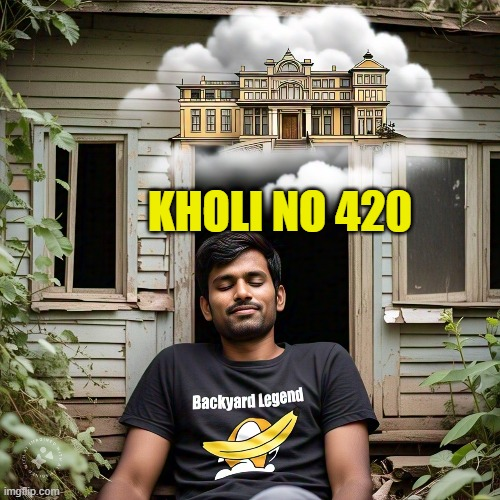Dream as we compare
The other day we heard some one smilingly refer to poets as dreamers.
Now it is accurate to refer to poets as dreamers but it is not discerning to
infer as this person did, that the dreams of poets are just as practical as
people who build bridges or look into microscopes as just as close to reality
and truth . where they differ from the logician and scientist is in the
temporal sense alone; they are ahead of their times. Where as logicians and
scientist are abreast of there time. We must not be superficial that we fail to
discern the practicality of dreams. Dreams are the sunrise streamers heralding
a new day of scientific progress another forward surge. Every forward step man
takes in any field of life is first taken along the dreamy paths of imagination.
Robert Fulton did not discover his steamboat with full steam up, straining at a
hawser at some Hudson River dock; first the dreamed the steamboat and then
scientific wisdom converted a picture in the mind into a reality of steel and
wood.
The automobile was not dug out of the ground like a nugget of gold; first men dreamed the automobile and afterwards the practical minded engineers caught up with what had been created by winging fantasy. He who looks deeply and with a seeing eye into the poetry of yesterday finds there all the cold scientific magic of today. If the poet does not dream so clearly that plot of this vision can immediately be drawn and the practical conversions immediately effected, he must not for that reason be smiled upon as merely the mental host of a sort of harmless madness. For the poet, like the engineer, is a specialist. His being ruined to the life of tomorrow, cannot be turned simultaneously to the life of today. To the scientist, he says, “Here I give you a flash of the future”. The wise scientist thanks him an takes that flash of the future and makes it over into a fiber of today.
Sri Aurobindo’s Vision of Conscious Evolution
At the core of Sri Aurobindo’s philosophy lies the concept of the triple transformation of human consciousness—a revolutionary reinterpretation of the Upanishadic tradition through a life-affirming lens. In The Life Divine, Aurobindo challenges the traditional view of existence and consciousness as maya (illusion), proposing instead a path of evolution that integrates the psychic, spiritual, and supramental dimensions of consciousness.
For Aurobindo, life
itself holds profound significance, offering the opportunity to align with
Divine consciousness. He emphasizes the seeker’s role in refining their nature
to become a channel for the descent of this higher consciousness. The
transformative idea of the Divine supramental consciousness descending into the
physical body gives Aurobindo’s philosophy an evolutionary thrust, suggesting
that humanity is being pushed by nature to transcend its current physical and
mental limitations.
Consciousness as the
Evolutionary Force
Central to Aurobindo’s vision is the understanding of consciousness, not merely as awareness or a tool for perceiving reality but as a dynamic force—the “Force of Being.” For him, consciousness evolves, moving beyond the limits of the human mind toward a divine, universal dimension. Drawing parallels with Hegel’s philosophy, Aurobindo sees the phenomenal world as one dimension of universal consciousness, culminating in the Supermind. This Supermind represents the synthesis of all layers of consciousness and serves as the gateway for the descent of universal consciousness into the physical realm—the next step in humanity’s evolution.
Aurobindo describes
this as a conscious unification: “the union of our soul of mind with universal
mind, our soul of life with universal life, and our soul of body with universal
physical existence.” Through this unification, consciousness becomes the bridge
between matter and spirit, revealing the Divine essence inherent in all
creation.
Chit Shakti and the
Descent of Grace
Aurobindo’s concept of
Chit Shakti—the dynamic energy of consciousness—highlights the interplay
between the Spirit and matter. Consciousness reveals itself through the forms
and processes of nature, urging seekers to experience this cosmic consciousness
directly. This evolutionary impulse is not merely an abstract ideal but a
tangible call to action for every seeker, driving humanity toward a deeper
integration of spirit and matter.
Savitri: A Mythic Expression
of Conscious Transformation
This transformative
vision finds poetic expression in Aurobindo’s magnum opus, Savitri. He reinterprets the ancient Upanishadic tale of Savitri
and Satyavan as an allegory of spiritual liberation from ignorance. In this
story, Savitri becomes the embodiment of Divine Grace, whose unwavering focus
enables her to conquer death, suffering, and ignorance, ultimately restoring
Satyavan to life.
The tale symbolizes
the individual soul’s ascent to higher dimensions of consciousness, culminating
in a revelation of the material world as a manifestation of absolute
consciousness. For Aurobindo, the inner guru,
like Savitri, becomes a guiding force, enabling seekers to transcend mortality
and experience life imbued with Divine purpose.
A New Meaning to
Existence
Sri Aurobindo’s
philosophy offers a profound reimagining of human existence, transforming it
from a seemingly directionless journey into a purposeful evolution toward
divinity. Through the descent of universal consciousness and the ascent of the
individual soul, life becomes a theater of transformation rather than
absurdity. This union of the finite and the infinite reveals a new meaning to
the here and
now, awakening humanity to its ultimate
potential.
IF HE EXIST
I drive joy there was a doctor in Benaras who
spent 7 minutes in the morning and evening for mediation on God. Knowing this,
his colleagues and friends laughed at him. One day they argued that he was
wasting 7 precious minutes on something, which he had been misled into
believing. The doctor replied, “Well, if God does not exist, I agree that I am
wasting 7 minutes a day. But, if He exists? I am afraid you are wasting your
entire lifetime. I prefer to waste 7 minutes rather than a lifetime. Why should
you grudge me the 7minutes joy that I derive 4m.-
ILLUSTRATED REVIEW :7th heaven moment of
the week in first test India scored 487 in second innings


























